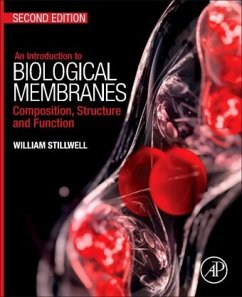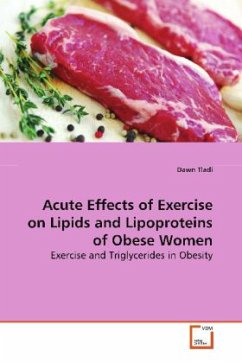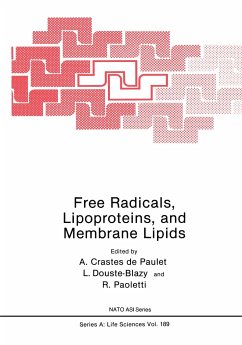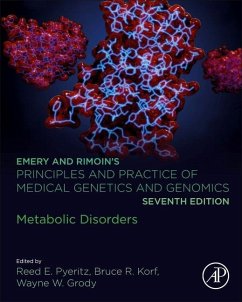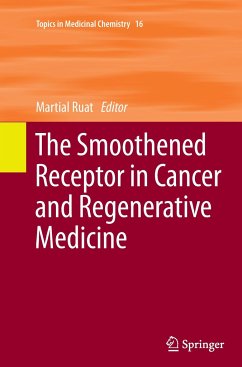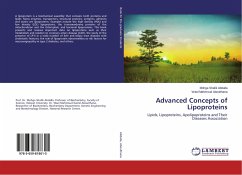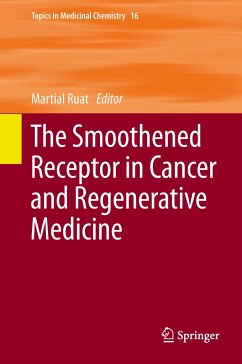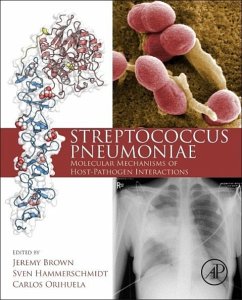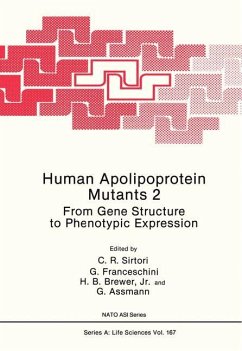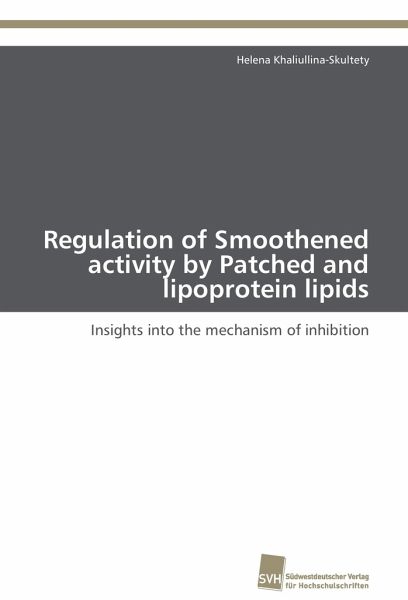
Regulation of Smoothened activity by Patched and lipoprotein lipids
Insights into the mechanism of inhibition
Versandkostenfrei!
Versandfertig in 6-10 Tagen
46,99 €
inkl. MwSt.

PAYBACK Punkte
23 °P sammeln!
Hedgehog is a morphogen that is carried on lipoproteins and that regulates patterning and proliferation. Hyperactivity of Hedgehog signaling causes numerous forms of cancer. Hedgehog acts via relieving repression of Smoothened by Patched - the mechanism of this repression has been unclear. The structural homology of Patched with bacterial transmembrane transporters suggests that Patched might regulate lipid trafficking to repress Smoothened. However, no endogenous lipid regulators of Smoothened have yet been identified, nor has it ever been shown that Patched actually controls lipid traffickin...
Hedgehog is a morphogen that is carried on lipoproteins and that regulates patterning and proliferation. Hyperactivity of Hedgehog signaling causes numerous forms of cancer. Hedgehog acts via relieving repression of Smoothened by Patched - the mechanism of this repression has been unclear. The structural homology of Patched with bacterial transmembrane transporters suggests that Patched might regulate lipid trafficking to repress Smoothened. However, no endogenous lipid regulators of Smoothened have yet been identified, nor has it ever been shown that Patched actually controls lipid trafficking. This work shows that, in Drosophila melanogaster, Patched regulates Smoothened trafficking from Patched-positive endosomes. Furthermore, it demonstrates that Patched recruits internalized lipoproteins to these endosomes, thereby regulating the efflux of specific lipoprotein-derived lipids from this compartment and utilizing these lipids to repress Smoothened. We propose that Patched normally promotes Smoothened degradation and inhibits its activity by utilizing a specific lipoprotein-derived lipid. Further, we suggest that presence of Hedgehog on lipoproteins prevents their utilization.



